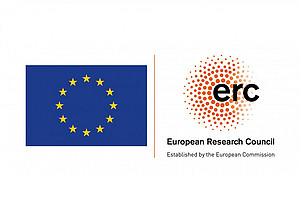PhaseControl
How cellular suicide programmes control phase transitions in fatty liver disease and liver cancer

ERC Consolidator Grant (# 771083)
Coordinator: Prof. Dr. Tom Lüdde
Duration: 11/2018-04/2025
Total: 1.998 Mio Euro
University Hospital Düsseldorf (since 08/2020)
The molecular mechanisms that regulate the development of liver cancer on the basis of fatty liver disease are being investigated with this project. Fatty liver disease is the most common form of liver disease in western industrialised nations. It can, for example, be caused by an unhealthy lifestyle and obesity, but genetic factors and environmental influences may also play a role. Some patients with fatty liver disease are at risk of developing liver cancer (HCC; hepatocellular carcinoma). Previous research has shown that liver cells can die in different ‘controlled’ ways as a result of various stress factors, for example excessive fatty degeneration. Such ‘suicide programmes’ are present in all body cells and can trigger various reactions in surrounding liver or immune cells. In PhaseControl it is investigated which key molecules in liver cells cause cell death through fatty degeneration and which signalling substances are released by the dying liver cell to stimulate other cells to inflammation and cell growth as the basis of carcinogenesis. The aim is to use such findings to better recognise which patients with fatty liver disease have a particularly high risk of developing cancer and how this process can be halted with new drugs. At the end of the project, a therapy concept is to be developed that can be tested in a clinical trial.
More informationen: PhaseControl: CORDIS Fact Sheet



